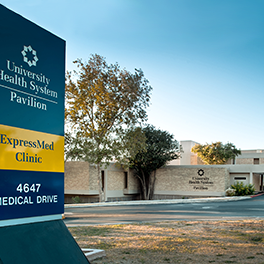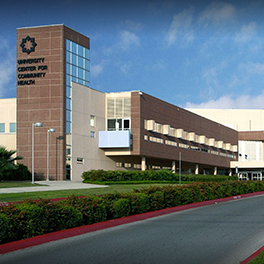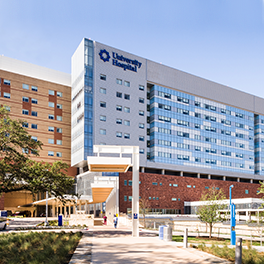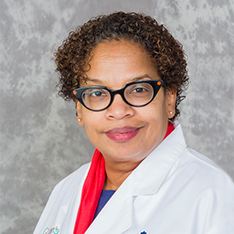University Health’s Wound Care and Hyperbaric Center offers state-of-the-art treatments and comprehensive care for non-healing or chronic wounds. Our certified wound care specialists have advanced training in how to care for and treat chronic wounds.
Locations at both the Texas Diabetes Institute and University Hospital give you convenient access to the total care you need to heal your wounds for good, starting on your first visit.
With a comprehensive approach that emphasizes all parts of your wound care, we look at you, not just your wound, to identify the reasons your wound won’t heal. Root causes can include complications from diabetes and poor nutrition.
When you leave our office, you’ll be empowered with the tools, education, supplies and specialty resources you need to recover and keep healthy practices in the long-term.
Coordinated Care
We use an interdisciplinary model of care, which means your wound treatment includes expertise from as many specialties as required to heal your wound.
We also use the latest approaches to wound healing and new scientific advances in wound care, including hyperbaric oxygen therapy, which helps bring oxygen to tissue cells that need it to heal.
Specialty Treatment Areas
- Diabetes education
- Infectious disease management
- Laboratory evaluation
- Nutritional management
- Occupational therapy
- Orthopedics
- Pain management
- Physical therapy
- Podiatry
Support Services
- A personalized wound treatment program
- Experienced staff to assist with appointments, medical records and health insurance processing
- Nursing staff trained in the care of chronic wounds
- Physicians with advanced training in wound management and hyperbaric oxygen therapy
- Technicians who perform non-invasive studies and various therapies
Wounds We Treat
- Diabetic ulcers: Patients who have diabetes can develop sores, usually in the lower extremities.
- Ischemic ulcers: These are also sores that result from issues with arterial blood flow.
- Neuropathic ulcers: These wounds are associated with loss of sensation in the areas where they are found.
- Pressure ulcers: These are also known as bed sores; they develop when you don’t shift weight or positioning often enough.
- Surgical wounds: Sometimes wounds after surgery have a longer than expected healing process.
- Severe burns: Deep burns that extend through part or all of the skin may need specialized treatment to heal.
- Traumatic wounds: A traumatic incident can leave wounds that are challenging to heal.
- Venous insufficiency or lymphedema: These are ulcers that come from swelling in your arms or legs related to poor venous or lymphatic circulation.
- Radiation injuries: Radiation exposure can cause a lack of oxygen in the body’s tissue which is needed for healing.
- Non-healing wounds: Chronic wounds are sores or ulcers that do not heal. A stalled wound is a wound that is no longer showing normal healing progress with no reduction or small reductions in size over time.
Ask for a Referral
If you have a wound that’s not showing signs of healing after two weeks, ask your primary care provider for a referral. The earlier we get started, the faster you will heal.





